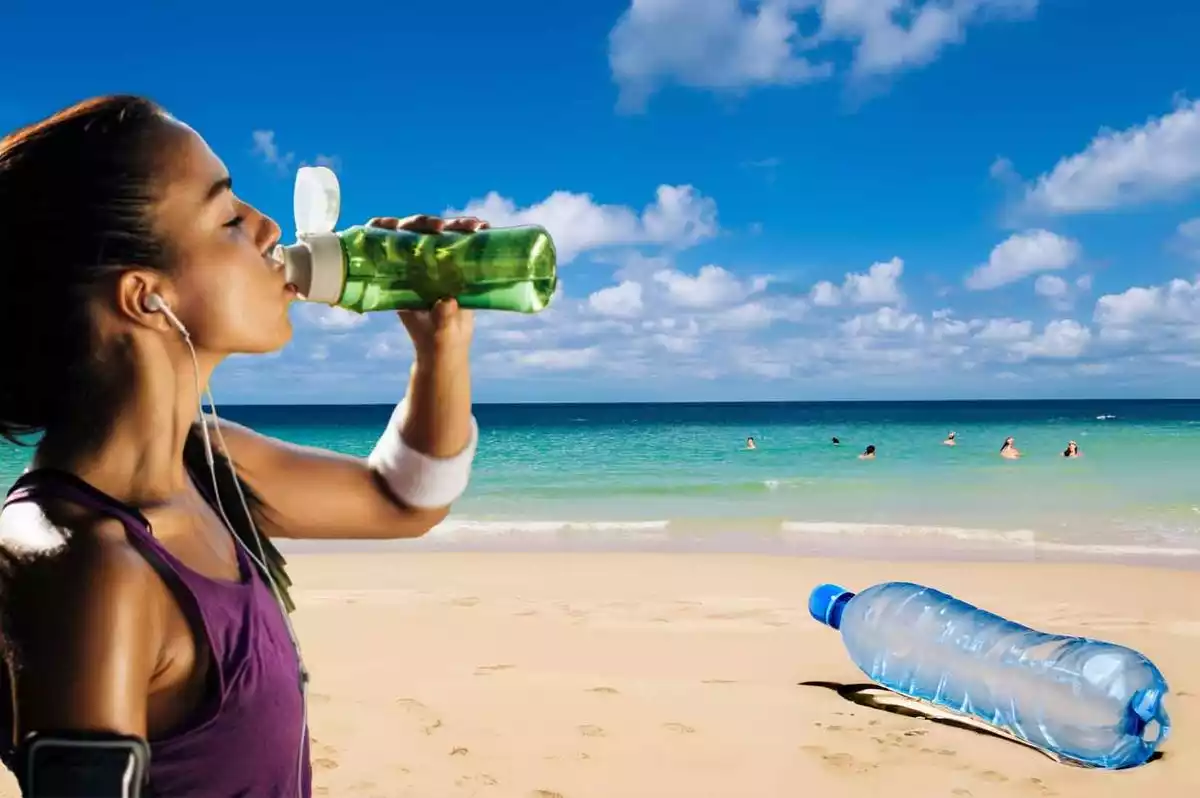Beware of Overhydration Risks: Essential Tips for a Healthy Summer
When temperatures rise, and the sun shines intensely, seeking ways to cool down and stay hydrated is natural. Drinking water is essential for maintaining proper hydration in our bodies, but did you know that overhydration can also pose risks to your health?
- Ornella Jameson
- May 12, 2025
- 0 Comments
- 2663 Views
Yes, you read that right. At the same time, we are often encouraged to drink plenty of water, especially in hot weather, it is essential to understand the limits and consequences of excessive hydration.
This article will explore the little-known dangers of overhydration, particularly in hot weather. We will discuss the adverse effects on the body and the risks associated with excessive water intake. It is crucial to be aware of these dangers to adopt safe and healthy hydration practices. Get ready to be surprised and challenge your preconceived notions about how much water you should drink in hot weather. Overhydration may be more dangerous than you imagined.
These cases are rare, but they do exist. According to a report from the National Library of Medicine 2003, a woman reportedly died in her sleep due to hyponatremia, a drop in blood sodium levels. Recently, another study suggested that the legendary Bruce Lee may have died from excessive water intake. While these cases are isolated and not encountered in every situation, it is essential to know that severe discomfort and, in rare cases, death can result from overhydration. Let us explore some fundamental concepts behind these discomforts and, in rare cases, fatalities.
I. What are the risks of overhydration?
1. Hyponatremia:
Hyponatremia is an electrolyte imbalance when sodium concentration in the blood becomes too low due to excessive dilution caused by overhydration. This can happen when you drink much water without compensating for sodium losses. Imagine you are boiling and decide to cool down by drinking lots of water. You may think you are acting responsibly by hydrating yourself abundantly, but unknowingly, you are not considering the importance of your bodys electrolyte balance.
Your body is like an aquarium with a specific water level and chemical composition. Sodium, an electrolyte, plays a crucial role in bodily fluid regulation. Maintaining an adequate level of sodium in the blood is vital for the proper functioning of your body. Now, imagine that you continue to drink water in large quantities without considering the amount of sodium you are losing through sweating. Your body becomes overwhelmed with excess water, diluting the sodium concentration in your blood. It is like adding water to the aquarium without compensating with enough salt.
As the sodium concentration decreases, you may start experiencing the initial symptoms of hyponatremia. You may feel nauseous, tired, and confused. Your muscles may cramp, and you may have difficulty coordinating your movements. Your body sends These early signals to alert you of an electrolyte imbalance. Hyponatremia can worsen and have more severe consequences if you do not respond and continue to drink excessive water. You could develop seizures, experience severe confusion, or even fall into a coma. In extreme cases, it can be life-threatening.
2. Kidney Stress
The kidneys are the organs most affected by overhydration. When the body is overhydrated, the kidneys work harder to eliminate the excess water. This can put additional strain on the kidneys and lead to a decrease in their optimal functioning. In individuals with already compromised kidney function, excessive fluid overload in the kidneys can be both the cause and effect of chronic kidney failure, according to the National Library of Medicine.
3- Digestive Issues
When digestive enzymes are diluted, they become less effective at breaking down food into nutrients. This can result in slower digestion and problems such as bloating, abdominal pain, flatulence, and heaviness.
Moreover, excessive overhydration can cause stomach distension. The stomach has a specific capacity; when we excessively fill it with water, it can stretch beyond its normal capacity. This can lead to discomfort, fullness, and abdominal distension.
Excessive overhydration can also lead to digestive problems such as bloating, nausea, and a feeling of fullness. This can make digestion uncomfortable and cause gastrointestinal disturbances.
Therefore, it is essential to balance our water consumption, avoiding dehydration and excessive overconsumption. Drinking small amounts of water throughout the day is recommended rather than consuming large amounts. Furthermore, preventing water in large quantities during meals is preferable to allow digestive juices to work efficiently.
II. How many liters of water to consume and some recommendations
It cannot be stressed enough that drinking 1.5 to 2.5 liters per day for those with a higher water intake is necessary, which is a recommendation from the WHO. Other suggestions should also be taken into account.
1. Follow general guidelines: As a general rule, adults should drink about 2 to 2.5 liters of water per day. However, this amount may vary depending on age, weight, level of physical activity, environment, and weather conditions. Consult a healthcare professional to determine the amount of water that suits you best.
2. Listen to your body: Learn to recognize your bodys thirst signals. If you feel thirsty, it means your body needs water. Do not ignore this sensation, and drink water regularly throughout the day.
3. Balance water and electrolyte intake: When you sweat, your body loses not only water but also electrolytes such as sodium, potassium, and magnesium. To maintain a proper balance, consider consuming electrolyte-rich foods or sports drinks that contain these essential minerals. This is particularly important during intense physical activities or in extreme heat conditions.
4. Adapt water consumption to environmental conditions: When temperatures are high, or when you find yourself in hot and humid environments, your body needs additional hydration to compensate for increased sweating. Increase your water intake in these situations and take regular breaks to hydrate.
5. Be mindful of diuretic beverages: Some drinks, such as coffee, tea, and alcoholic beverages, have a diuretic effect, which means they can increase urine production and potentially raise the risk of dehydration. If you consume these beverages, compensate by increasing your water intake.
6. Prioritize continuous hydration: Instead of drinking large quantities of water at once, it is better to maintain continuous hydration throughout the day. Carry a water bottle with you and take regular sips to stay hydrated.
By following these recommendations and adjusting your water consumption based on your needs and environmental conditions, you can maintain adequate hydration while avoiding the risks associated with overhydration or insufficient water intake. Listen to your body, be attentive to your needs, and strive for a healthy balance for optimal hydration.
III. The Risk Groups
It is important to note that specific individuals are more vulnerable to the harmful effects of overhydration. Here are some risk groups to consider:
1. Athletes: Individuals engaged in intense physical activity, especially high-level athletes, may be more prone to overhydration. This can be due to a misconception that more water is better. Athletes need to be aware of their individual hydration needs, which can vary based on the duration and intensity of their physical activity and the environmental conditions in which they train.
2. Individuals with certain medical conditions: Certain medical conditions, such as kidney failure, congestive heart failure, or syndrome of inappropriate antidiuretic hormone secretion (SIADH), can lead to excessive water retention in the body and increase the risk of hyponatremia. Individuals with these conditions need to carefully follow the recommendations of their healthcare professionals regarding their water intake.
3. Elderly individuals: Older adults may be more vulnerable to electrolyte imbalances due to age-related physiological changes. Additionally, some older individuals may have difficulty sensing thirst and hydrating adequately. It is essential to closely monitor their water intake and assist them in maintaining adequate hydration, especially during periods of intense heat.
4. Children: Children also have specific hydration needs. Their water regulation system is still developing, and they may be more sensitive to electrolyte fluctuations. Parents should encourage their children to drink enough water without overdoing it, considering their weight, level of activity, and environmental conditions.
It is important to be aware that while water is essential for our health, overconsumption can be dangerous, especially during periods of intense heat. Hyponatremia, an electrolyte imbalance caused by excessive water in the body, can lead to severe and even life-threatening symptoms. Understanding the signs of water overconsumption and adopting healthy and balanced hydration practices is crucial.

 | Unlock Success with Our Guide
| Unlock Success with Our Guide



0 Comments